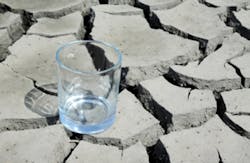Southern California aims to reduce water consumption
RIVERSIDE, Calif. — Southern California water agencies have turned to new pricing structures, expanded rebate programs and implemented other means to encourage their customers to reduce consumption, as the state enters its fourth year of severe drought, according to a press release.
A report published in the UC Riverside School of Public Policy journal Policy Matters, published quarterly, identified that some of those water-conservation policies have greatly reduced per capita consumption, while others have produced mixed results, stated the release.
The release reported that water utilities throughout California are working to satisfy a 2010 state mandate to reduce per capita urban water demand 20 percent by 2020.
Water policy experts and UC Riverside faculty, Kurt Schwabe, Ken Baerenklau and Ariel Dinar, reviewed some of their recent research presented at a UC Riverside workshop on urban water management earlier this year, which highlighted efforts by Southern California water agencies to promote water conservation, relevant research findings by UC faculty and challenges that remain to further reduce water demand, continued the release.
Efforts to reduce water demand by changing behavior fall into two categories: Price and non-price, according to the water policy experts; price-based approaches focus on adjusting the price of water while non-price approaches include other demand-management strategies such as the use of water-conserving technologies and conversion of lawns to drought-tolerant landscapes, often promoted with rebates, and mandatory restrictions, noted the release.
“California is a water-scarce state and needs to have policy tools to deal with scarcity whether in drought years or otherwise,” said Dinar.
You can find the report, “Coping With Water Scarcity: The Effectiveness of Allocation-Based Pricing and Conservation Rebate Program in California’s Urban Sector,” by Dinar, Baerenklau and Schwabe, here.
Read the entire release here.
